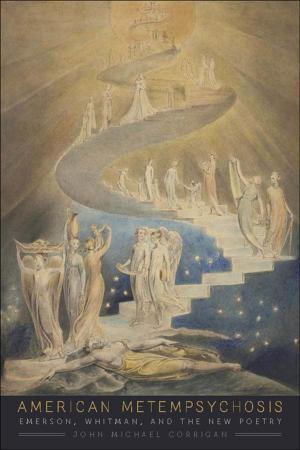Kant in the Land of Extraterrestrials
Cosmopolitical Philosofictions
Nonfiction, Entertainment, Film, History & Criticism, Performing Arts, Religion & Spirituality, Philosophy| Author: | Peter Szendy | ISBN: | 9780823255511 |
| Publisher: | Fordham University Press | Publication: | September 2, 2013 |
| Imprint: | Fordham University Press | Language: | English |
| Author: | Peter Szendy |
| ISBN: | 9780823255511 |
| Publisher: | Fordham University Press |
| Publication: | September 2, 2013 |
| Imprint: | Fordham University Press |
| Language: | English |
“Yes, Kant did indeed speak of extraterrestrials.” This phrase could provide the opening for this brief treatise of philosofiction (as one speaks of science fiction). What is revealed in the aliens of which Kant speaks—and he no doubt took them more seriously than anyone else in the history of philosophy—are the limits of globalization, or what Kant called cosmopolitanism.
Before engaging Kantian considerations of the inhabitants of other worlds, before comprehending his reasoned alienology, this book works its way through an analysis of the star wars raging above our heads in the guise of international treaties regulating the law of space, including the cosmopirates that Carl Schmitt sometimes mentions in his late writings.
Turning to track the comings and goings of extraterrestrials in Kant’s work, Szendy reveals that they are the necessary condition for an unattainable definition of humanity. Impossible to represent, escaping any possible experience, they are nonetheless inscribed both at the heart of the sensible and as an Archimedean point from whose perspective the interweavings of the sensible can be viewed.
Reading Kant in dialogue with science fiction films (films he seems already to have seen) involves making him speak of questions now pressing in upon us: our endangered planet, ecology, a war of the worlds. But it also means attempting to think, with or beyond Kant, what a point of view might be.
“Yes, Kant did indeed speak of extraterrestrials.” This phrase could provide the opening for this brief treatise of philosofiction (as one speaks of science fiction). What is revealed in the aliens of which Kant speaks—and he no doubt took them more seriously than anyone else in the history of philosophy—are the limits of globalization, or what Kant called cosmopolitanism.
Before engaging Kantian considerations of the inhabitants of other worlds, before comprehending his reasoned alienology, this book works its way through an analysis of the star wars raging above our heads in the guise of international treaties regulating the law of space, including the cosmopirates that Carl Schmitt sometimes mentions in his late writings.
Turning to track the comings and goings of extraterrestrials in Kant’s work, Szendy reveals that they are the necessary condition for an unattainable definition of humanity. Impossible to represent, escaping any possible experience, they are nonetheless inscribed both at the heart of the sensible and as an Archimedean point from whose perspective the interweavings of the sensible can be viewed.
Reading Kant in dialogue with science fiction films (films he seems already to have seen) involves making him speak of questions now pressing in upon us: our endangered planet, ecology, a war of the worlds. But it also means attempting to think, with or beyond Kant, what a point of view might be.















